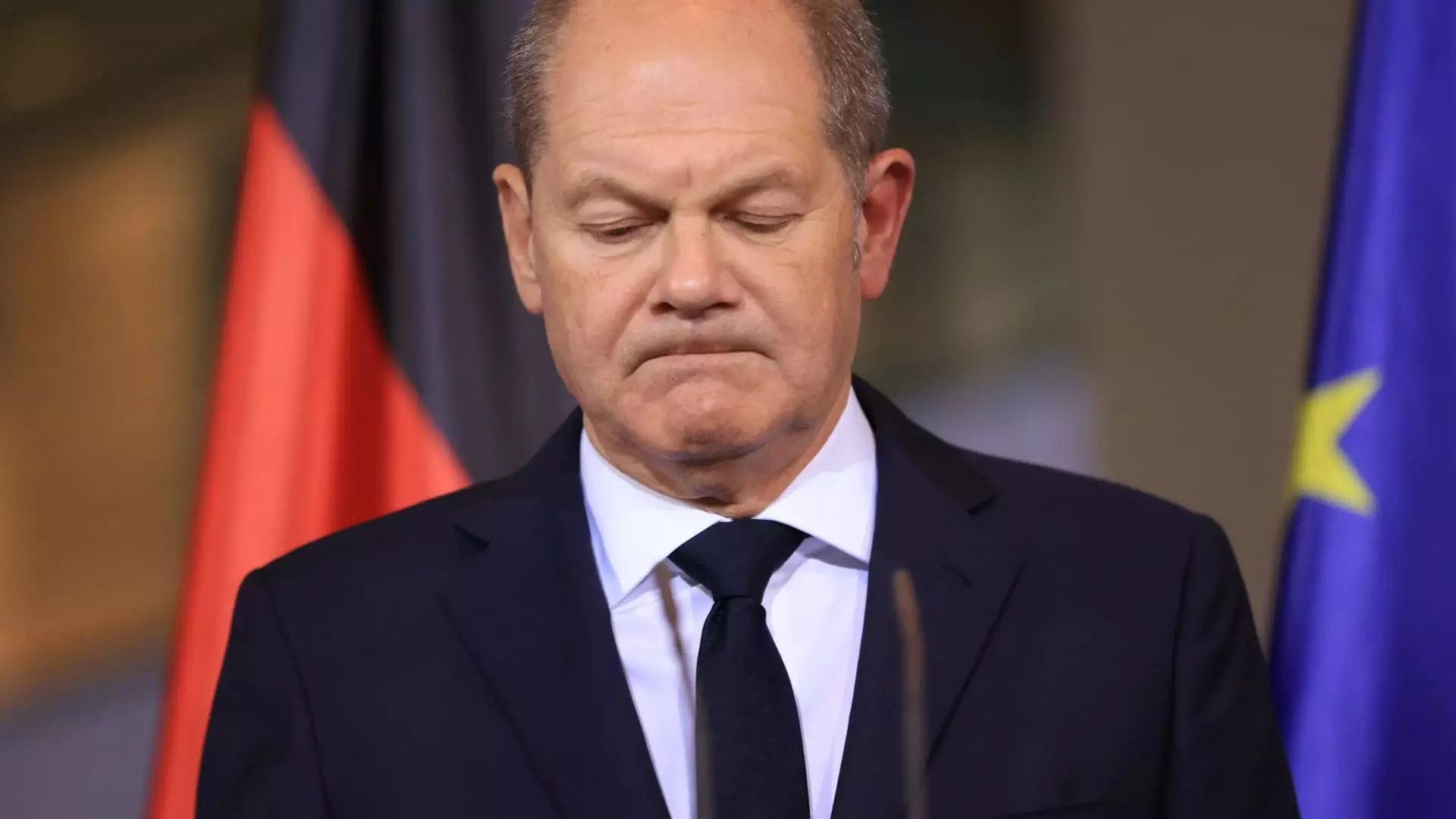Germany’s economy, once a powerhouse within Europe, faces an uncertain future as Donald Trump ascends to the presidency once more. Recent reports indicate that this crucial economy teetered on the brink of a recession, narrowly escaping with a small GDP growth of 0.2%, following a previous contraction. The nation has been grappling with an array of economic challenges, and the implications of Trump’s leadership threaten to exacerbate these issues exponentially.
As of late 2023, the economic indicators in Germany paint a troubling picture. Rather than demonstrating growth, various metrics suggest stagnation or decline. A recent report from the German economy ministry highlighted a shift in expectations; it now predicts contraction rather than growth for the year. This retraction comes as Germany’s composite Purchasing Managers’ Index (PMI) indicates a slight uptick, yet remains firmly in negative territory, outlining the struggles faced across the economic landscape.
The backdrop to this economic fragility is not solely national; it is deeply intertwined with international affairs, particularly in light of changing political dynamics across the Atlantic. Following Trump’s recent electoral victory, there is profound concern among economists that the resultant U.S. policies could have dire consequences for Germany’s economy, particularly in the realms of trade and foreign relations.
Moritz Schularick, a notable economist and president of the Kiel Institute for the World Economy, expressed serious apprehensions following Trump’s reelection, stating that Germany is on the precipice of one of its most significant economic challenges post-World War II. Trump’s administration has historically threatened to impose substantial tariffs on imports which, if enacted, could dramatically affect Germany’s economy. Given the country’s heavy reliance on exports, with approximately 9.9% directed to the U.S. alone, German businesses are poised to bear the brunt of potential punitive trade measures.
Should Trump implement his proposed tariffs—ranging from 10% to 20% on goods entering the U.S.—it could disenfranchise many German exporters. The ifo economic institute has already projected severe repercussions, estimating that these proposed tariff implementations could translate to a staggering economic loss of approximately €33 billion for Germany, affecting key sectors like automotive and chemicals, which are integral to the nation’s industrial base.
In the face of such daunting predictions, economic experts are urging Germany and the European Union to take decisive action. Lisandra Flach, director of the ifo Center for International Economics, advocates for a dual strategy: first, fortifying the EU’s internal market, particularly in services; second, establishing credible retaliatory measures in response to any aggressive trade policies from the U.S.
This necessity for a robust response is underscored by the growing perception that the U.S. might withdraw from global cooperative economic practices under Trump’s leadership. Germany must be proactive, not reactive, to shifting tides in international trade dynamics to safeguard its economic interests.
While external pressures from Trump’s presidency mount, Germany’s internal governance also faces challenges. The political landscape has recently experienced upheaval, not least with Chancellor Olaf Scholz’s dismissal of Finance Minister Christian Lindner, indicating instability within the ruling coalition.
This domestic discord comes at a critical juncture when Germany’s leadership must carefully navigate relations with the U.S. While Scholz has asserted Germany’s role as a “reliable partner,” it remains to be seen whether this stance will translate into effective policy-making that addresses the looming challenges posed by an adversarial U.S. trade policy.
Moreover, Lindner’s previous discussions of outreach and a willingness to engage with Trump juxtapose sharply against the broader need for firmness in European stances on trade and security. As tensions could escalate, there appears to be an urgent call for coherent policy frameworks that articulate how Europe, particularly Germany, will respond if Trump’s administration engages in protectionist tactics.
As the world watches Germany’s precarious balancing act, the ramifications of Trump’s presidency loom large over the nation’s economy. With structural issues compounded by potential global trade conflicts, Germany faces a pivotal moment requiring strategic foresight and unified action both domestically and within the European Union. Only through collective resilience and adaptability can Germany hope to navigate this turbulent landscape and maintain economic stability in the years ahead.


Leave a Reply